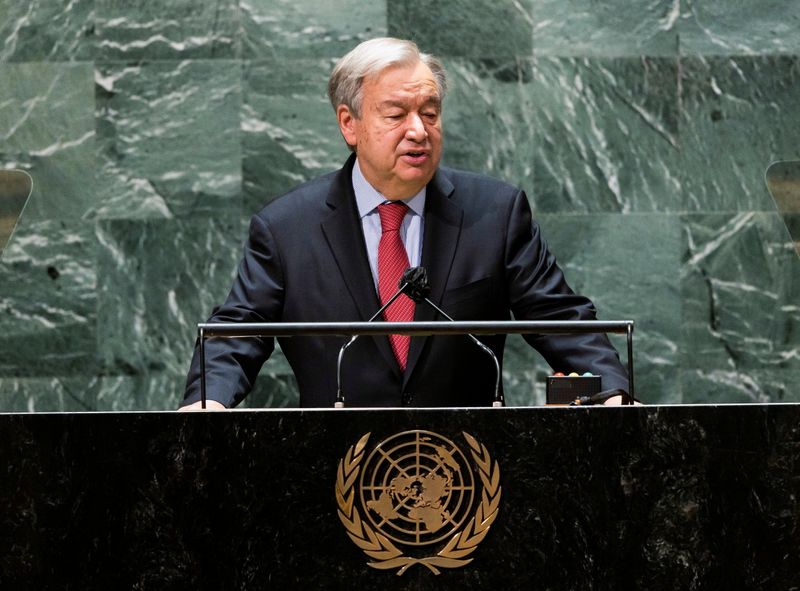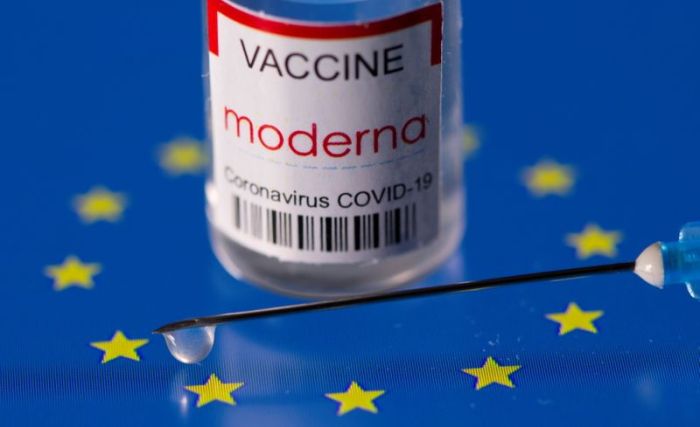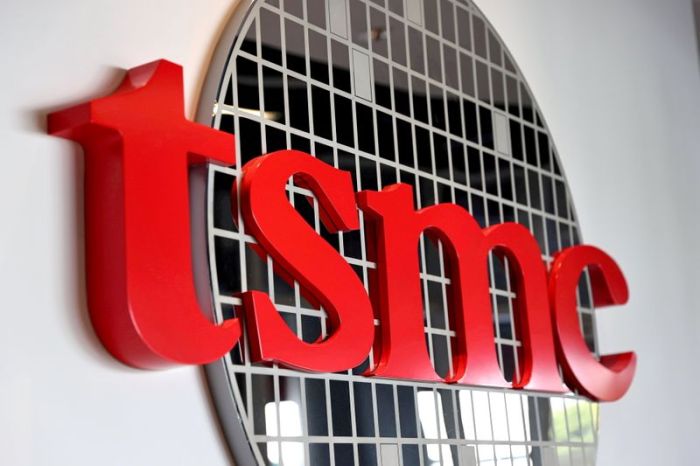UNITED NATIONS (Reuters) -U.N. Secretary-General Antonio Guterres appealed on Thursday for $8 billion to help equitably vaccinate 40% of people in all countries by the end of the year, as the World Health Organization (WHO) launched a plan that aims to inoculate 70% of the world by mid-2022.
Guterres urged the Group of 20 rich countries to deliver on their “desire to get the world vaccinated” at a summit in Rome later this month.
“Not to have equitable distribution of vaccines is not only a question of being immoral, it is also a question of being stupid,” he said at a joint news conference with WHO Director-General Tedros Adhanom Ghebreyesus.
So far, more than 6.3 billion doses of coronavirus vaccines have been administered globally.
But more than half of the world has yet to receive at least one dose of a COVID-19 vaccine, according to Our World in Data, and less than 5% of Africans have been fully vaccinated, according to the continent’s top public health official.
The WHO plan calls for countries with high vaccine coverage to allow expected deliveries of additional doses to first go to the COVAX global sharing program and the African Vaccine Acquisition Trust (AVAT) for distribution to where they are more urgently needed. It also wants the richer nations to fulfill and accelerate vaccine dose-sharing and donation commitments to COVAX, and make new pledges.
And it calls on drugmakers to prioritize and urgently fulfill COVAX and AVAT vaccine contracts, be transparent about monthly production data and give clear monthly schedules for supplies to COVAX, AVAT and low and low-middle income countries.
“The whole U.N. system has shown leadership, but we have no power,” Guterres said. “The power is in the countries that produce vaccines or might produce them, and in the companies.”
Tedros also questioned why countries had been unable to agree on a temporary waiver of intellectual property rights on COVID-19 vaccines and therapies at the World Trade Organization.
“If we cannot use it now during this unprecedented situation, when do we use the TRIPS waiver?” Tedros said. “Why do we even, in the first place, have these IP waivers … if we’re not going to use it in such conditions?”
“Manufacturers and governments should really ask themselves this question,” he said.
Negotiations on a such a move – proposed by South Africa and India a year ago – are deadlocked and directionless, sources said on Monday after a meeting on the topic.
(Reporting by Michelle NicholsEditing by Bill Berkrot)


























